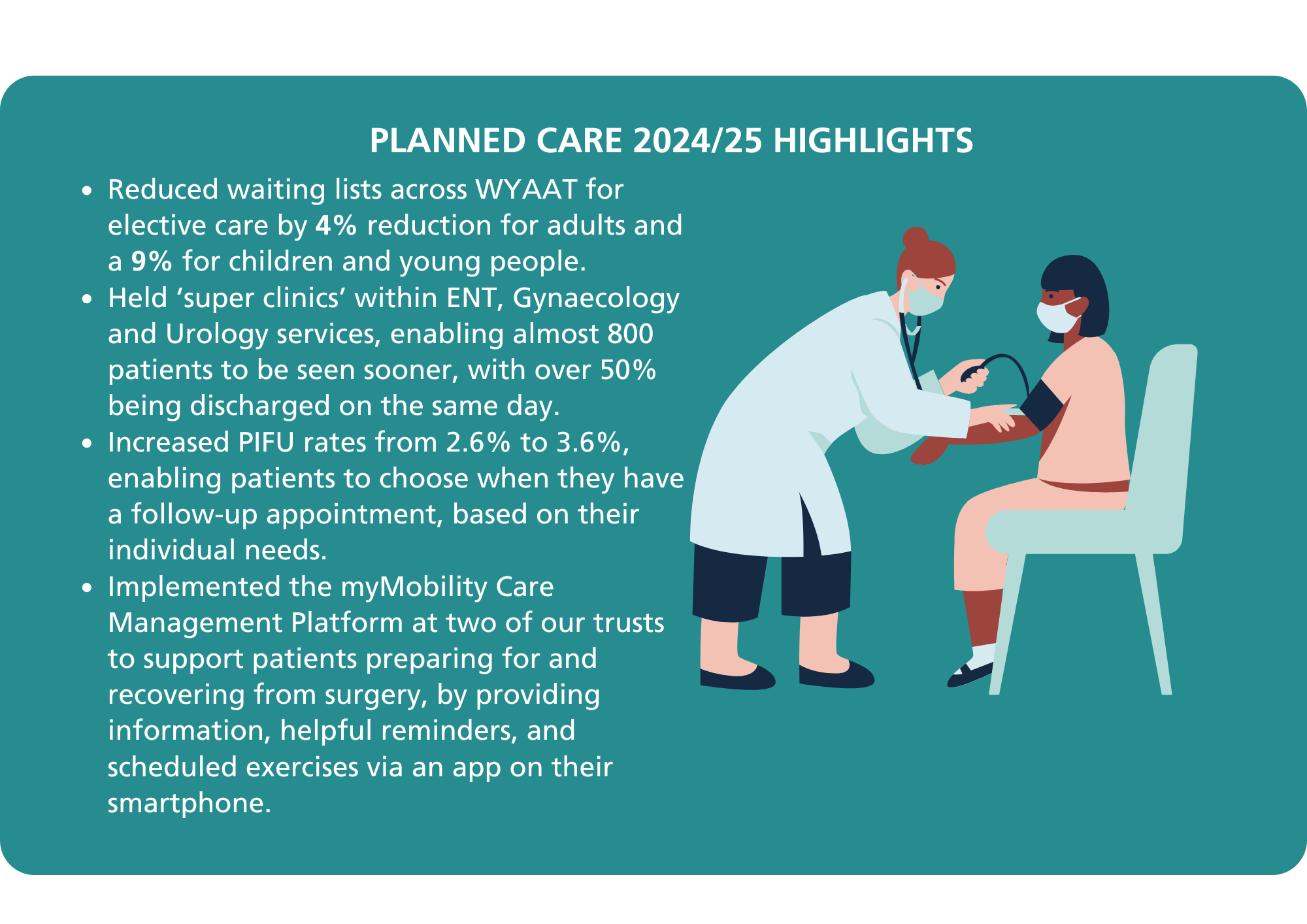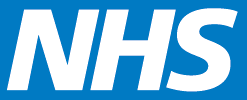The Planned Care programme has a focus on the recovery of waiting lists after the COVID-19 pandemic and aims to increase capacity across our trusts by sharing best practice and workforce, and creating a consistent approach to prioritisation, ensuring all patients have equity of access and receive the right care, at the right time, in the right place.
Our trusts are working hard with their partners in social care, community, and primary care, to ensure that the national priority direction towards protecting screening, diagnostic and treatment capacity is reflected in practice.
The programme is both clinically and operationally led. Driven by data, our trusts work together to:
- Increase the capacity within our organisations so patients have shorter waiting times for their treatment
- Treat the most unwell patients first, followed by those which have been waiting the longest, where possible
- Ensure all pathways are optimised so the right patients attend their appointments using the right method, in the right organisation, at the right time and receive the right treatment
- Collaborate on workforce, so our trusts can cover roles effectively and our people are fulfilled in their work
- Improve communication and provide better information and engagement with patients, carers and all who use our services
- Have a consistent approach to prioritisation of all patients to ensure equity of access across all six organisations.
We collaborate with teams within primary and community care to make improvements across the entire patient pathway. Our work with primary care has included identifying ways to reduce the number of missed appointments, known as ‘did not attends (DNAs) and how we can make the processes around appointments more equitable for different patient groups. We have continued to expand our use of virtual consultation across our services to ensure more patients can access appointments without requiring a hospital visit.
We are working with partners to explore the best digital technology available to provide patients with timely information about their care, manage their appointments and receive information to support them before and after their treatment.









